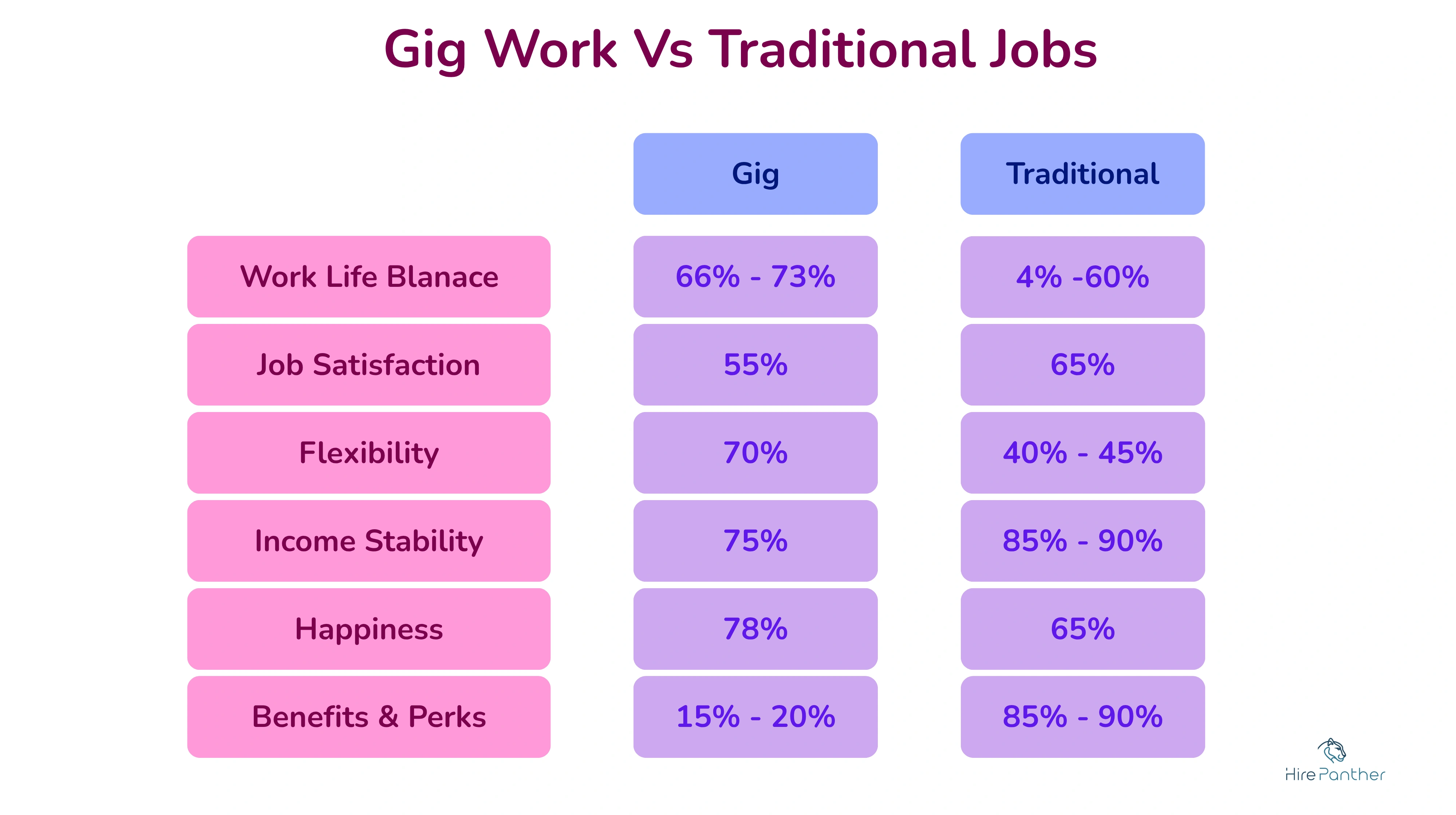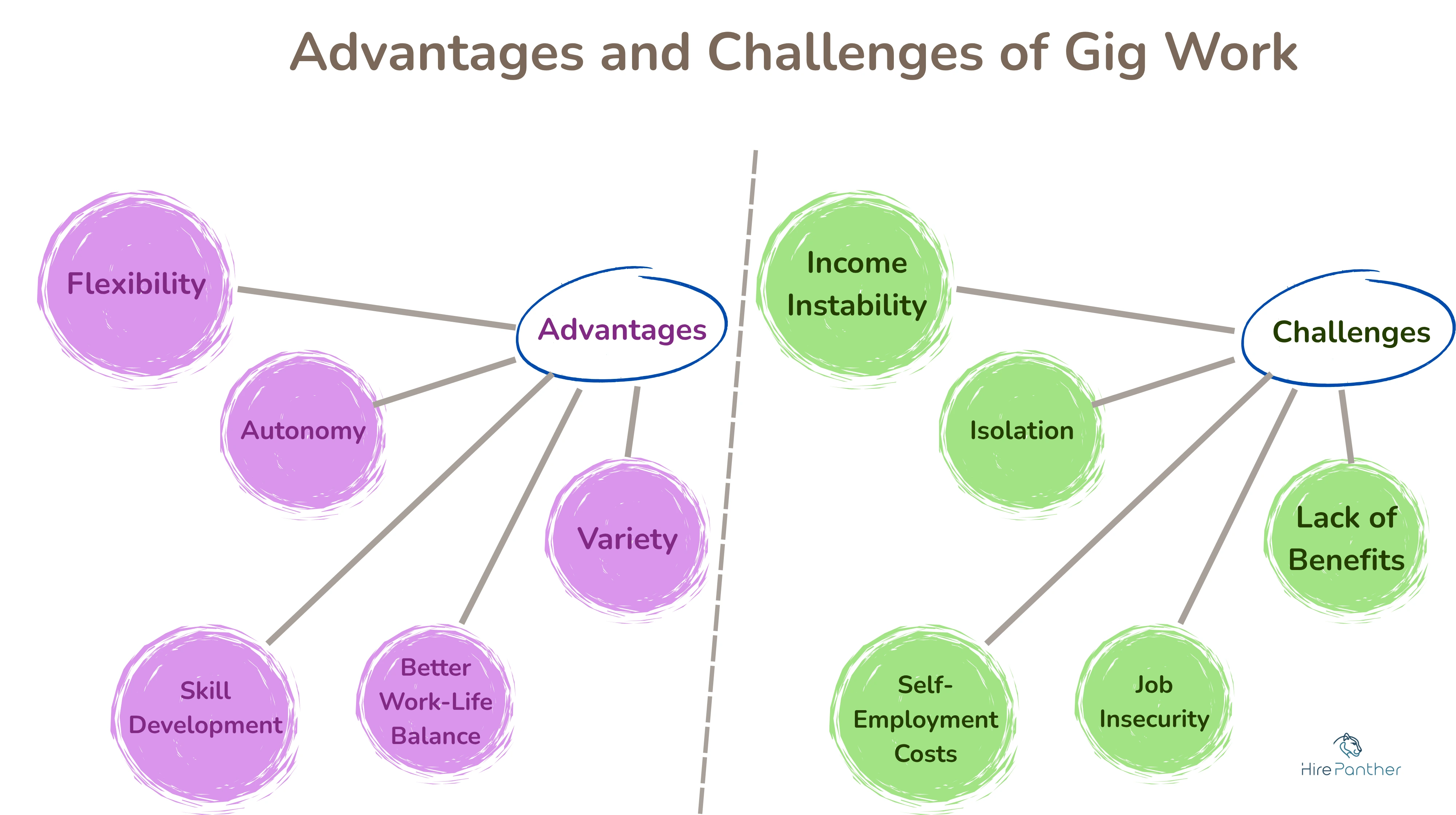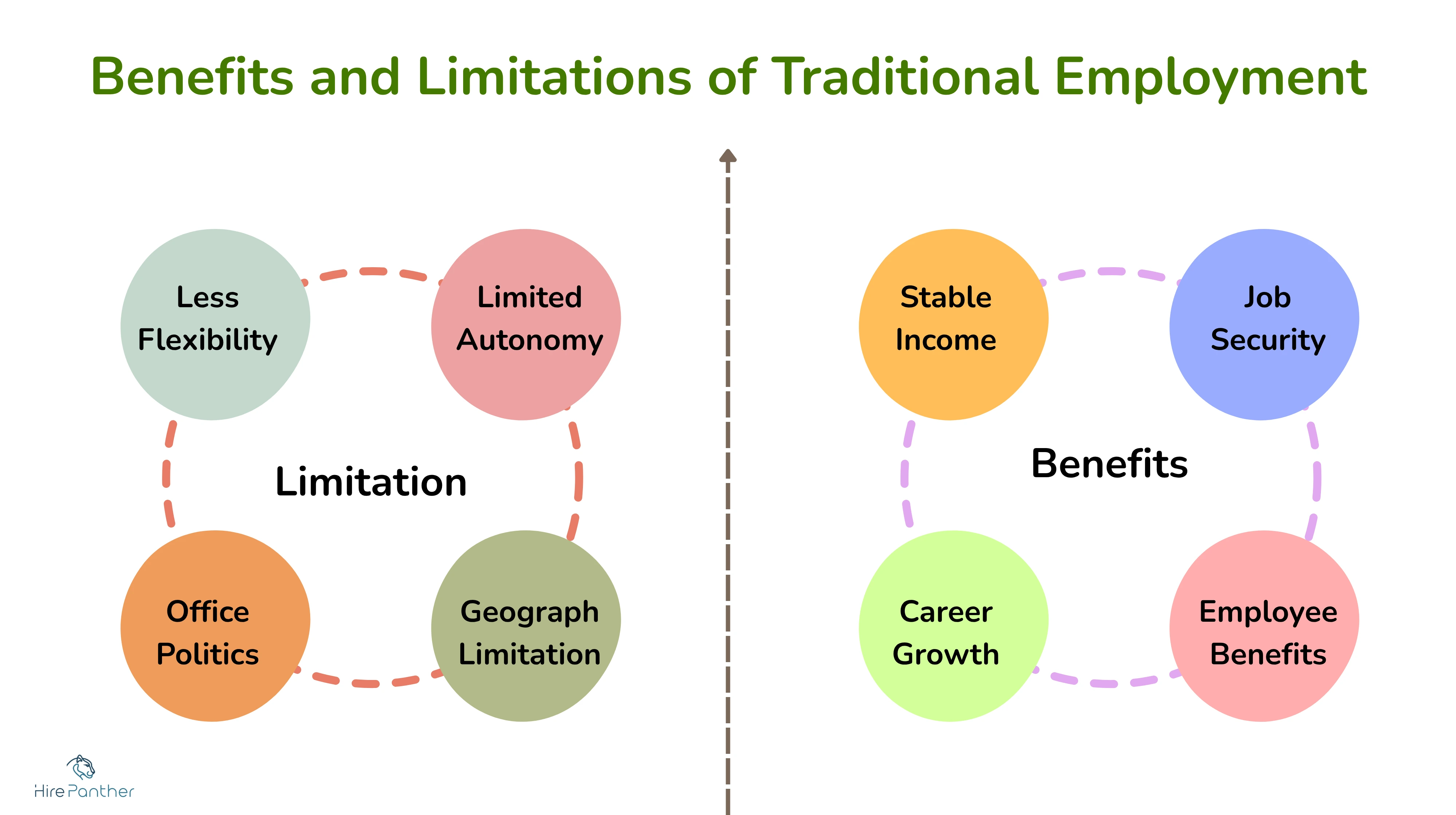Gig Work vs Traditional Jobs: Pros & Cons in 2025
- 05 Aug, 2025

Introduction: Evaluating Employment Options in 2025
As the Canadian workforce evolves, choosing between gig work and traditional employment has become increasingly critical. Both employment styles offer distinct advantages and disadvantages. In this blog, we examine these pros and cons to help you make informed career decisions in 2025.

Understanding Gig Work
Gig work refers to short-term, freelance-based engagements, often facilitated through digital platforms. Gig workers typically handle multiple clients or projects simultaneously, providing considerable flexibility.
Pros of Gig Work
1. Flexibility and Autonomy
- Choose your projects and clients
- Manage your own schedule and working hours
2. Diverse Opportunities
- Explore various industries and skills
- Continually build new experiences
3. Independence and Personal Fulfillment
- Greater control over your career path
- Opportunity to pursue personal passions and interests
Cons of Gig Work
1. Income Instability
- Irregular income flow
- Potential for inconsistent workload
2. Lack of Traditional Employment Benefits
- Limited access to healthcare, pensions, and paid vacations
3. Increased Responsibility
- Managing administrative tasks like taxes, invoicing, and marketing

Understanding Traditional Jobs
Traditional employment involves working full-time or part-time under a formal employment agreement, typically providing regular salary, benefits, and structured job roles.
Pros of Traditional Jobs
1. Financial Security
- Regular income and predictable earnings
- Stable financial planning
2. Comprehensive Benefits
- Health insurance, retirement plans, paid time off
3. Structured Career Path
- Clear professional growth opportunities
- Established hierarchy and organizational support
Cons of Traditional Jobs
1. Limited Flexibility
- Set working hours and locations
- Less control over projects and tasks
2. Reduced Autonomy
- Potentially limited influence on job responsibilities
3. Limited Variety
- Often restricted to specific job roles and industries

Who Should Consider Gig Work?
Gig work is ideal for individuals who:
- Value flexibility and autonomy
- Seek diverse professional experiences
- Can manage financial unpredictability effectively
Who Should Consider Traditional Jobs?
Traditional employment suits individuals who:
- Prioritize stability and predictable income
- Desire structured career advancement
- Value comprehensive benefits packages
Finding a Balanced Approach: Hybrid Employment
A growing trend is combining gig work and traditional jobs, offering flexibility and security simultaneously. This hybrid approach allows individuals to diversify their income sources and gain greater professional satisfaction.
Conclusion: Choosing Your Ideal Career Path
Deciding between gig work and traditional employment involves considering personal priorities, lifestyle preferences, financial goals, and career aspirations. Both paths offer distinct advantages; carefully evaluate which aligns best with your individual needs and professional objectives.
Stay updated on employment trends - subscribe to our blog for valuable insights and updates!
